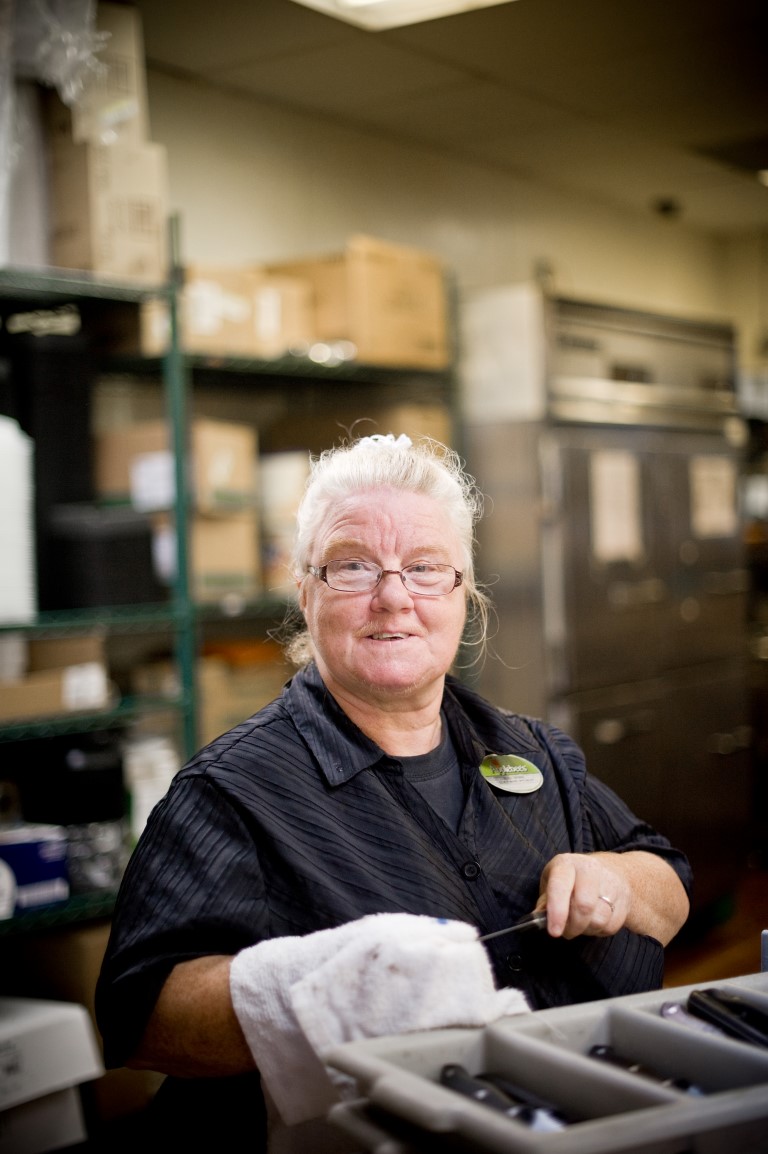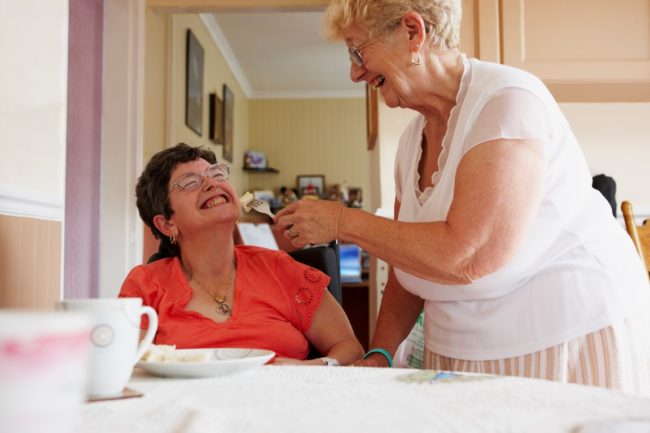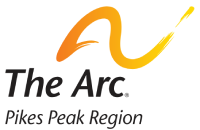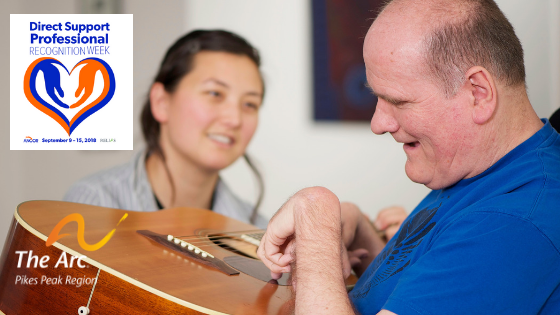By: Rowan Frederiksen
September 9-14, 2018 is Direct Support Professional Recognition week! We are grateful for our Direct Support Professionals!
The Arc Pikes Peak Region appreciate all that you do for our community, not only this week, but every week.
What is a Direct Support Professional?
A direct support professional is someone who works directly with people with physical disabilities and/or intellectual disabilities with the aim of assisting the individual to be integrated into his or her community or least restrictive environment. People in this profession assist individuals with a disability to lead a self-directed life and contribute to the community. They assist individuals with daily activities, if necessary. For example, a professional may accompany an individual to a doctor’s appointment, cook and serve individuals their meals, perform light housekeeping duties, and run errands.
One of the more important things Direct Support Professionals do is encourage attitudes and behaviors that enhance community inclusion and provide companionship to these individuals with I/DD. Encouraging these behaviors and attitudes, in the end lead to a more successful life for the individual.
There are many types of direct services, like host home providers, day programs and supported employment.
Day Programs
Day Programs are non-medical centers that provide care to the elderly and to people with physical and/or intellectual disabilities who require personal care services, protective supervision or assistance in activities of daily living. Services through day programs are provided according to an individual’s plan of care in a structured and comprehensive program that offers activities tailored to their abilities, nutritional services, health monitoring, transportation, respite and support for families.
There are two different categories of day programs, one of them being Specialized Day Habilitation. In most cases, this is a non-integrated setting where most individuals have a disability, such as program sites. Here, services that are provided include: self-feeding, self-care, sensory stimulation and integration, self-sufficiency, maintenance skills, and supervision. Some of the services exist to reinforce certain skills learned in school, therapy or other settings. Where it is necessary, these services may be paired with any physical, occupational, or speech therapies that are listed in the individuals plan of care.
 The second category of day program is Community Accessibility Services. These services support the abilities and skills that an individual needs to access the community and/or provide the basis for building the skills that enable the individual to access the community. This category allows the individual to socialize, build adaptive skills and maneuver the activities and functions within the community.
The second category of day program is Community Accessibility Services. These services support the abilities and skills that an individual needs to access the community and/or provide the basis for building the skills that enable the individual to access the community. This category allows the individual to socialize, build adaptive skills and maneuver the activities and functions within the community.
Day program staff accompany and support the individual in all types of community settings, encouraging attitudes and behaviors that will enhance their inclusion and participation.
Host Home Providers
 Host home providers are independent contractors who graciously open their homes and provide care to the people they support. There are 6.2 million people with I/DD in the United States, and most of them are living with their families. Host Home Providers allow individuals with I/DD to live a more autonomous life. People who use host home providers have more choices and control over their lives, have more friendships and relationships, they are more engaged within their communities and experience greater life satisfaction. Host home providers can still aid with daily activities as needed for the individual, but always encourage the them to lead a self-directed life.
Host home providers are independent contractors who graciously open their homes and provide care to the people they support. There are 6.2 million people with I/DD in the United States, and most of them are living with their families. Host Home Providers allow individuals with I/DD to live a more autonomous life. People who use host home providers have more choices and control over their lives, have more friendships and relationships, they are more engaged within their communities and experience greater life satisfaction. Host home providers can still aid with daily activities as needed for the individual, but always encourage the them to lead a self-directed life.
Supported Employment
 Supported employment is available to individuals regardless of the disability. The purpose behind supported employment is to help individuals get a job and maintain that job. They work one-on-one, building and tailoring their resume, practicing interview questions and prepping the individual for the job they are applying for.
Supported employment is available to individuals regardless of the disability. The purpose behind supported employment is to help individuals get a job and maintain that job. They work one-on-one, building and tailoring their resume, practicing interview questions and prepping the individual for the job they are applying for.
The service provider can also act as a job coach, teaching the individual the necessary skills needed to be successful in that position. Providers tend to check in with individuals on a weekly basis and even stop by their work to see how they are doing in that working environment. If needed, the provider can also act as a liaison for the individual and people they work with, creating a healthier work space for all involved.
There are many different types of direct service, these examples just begin to explain the types of services provided and how providers work within each area. Direct service providers play a tremendous role in the well-being of individuals with an intellectual and/or developmental disability. So, this week, be sure to be extra thankful and appreciative of the service provider in your life. Spread the love and give them a big ol’ hug.
Read here for more information on service agencies, follow this link.
Sources: Community Living and Participation for People with Intellectual and Developmental Disabilities, Long-Term Services & Supports – Benefits & Services: Day Habilitation Services.
Subscribe To Our Newsletter and SMS Reminders
The best way to ensure that you receive our newsletter, our event invitations, SMS reminders and other important information is to become a member of The Arc of the Pikes Peak Region.
The best way to ensure that you receive our newsletter, our event invitations, and other important information is to become a member of The Arc of the Pikes Peak Region.


